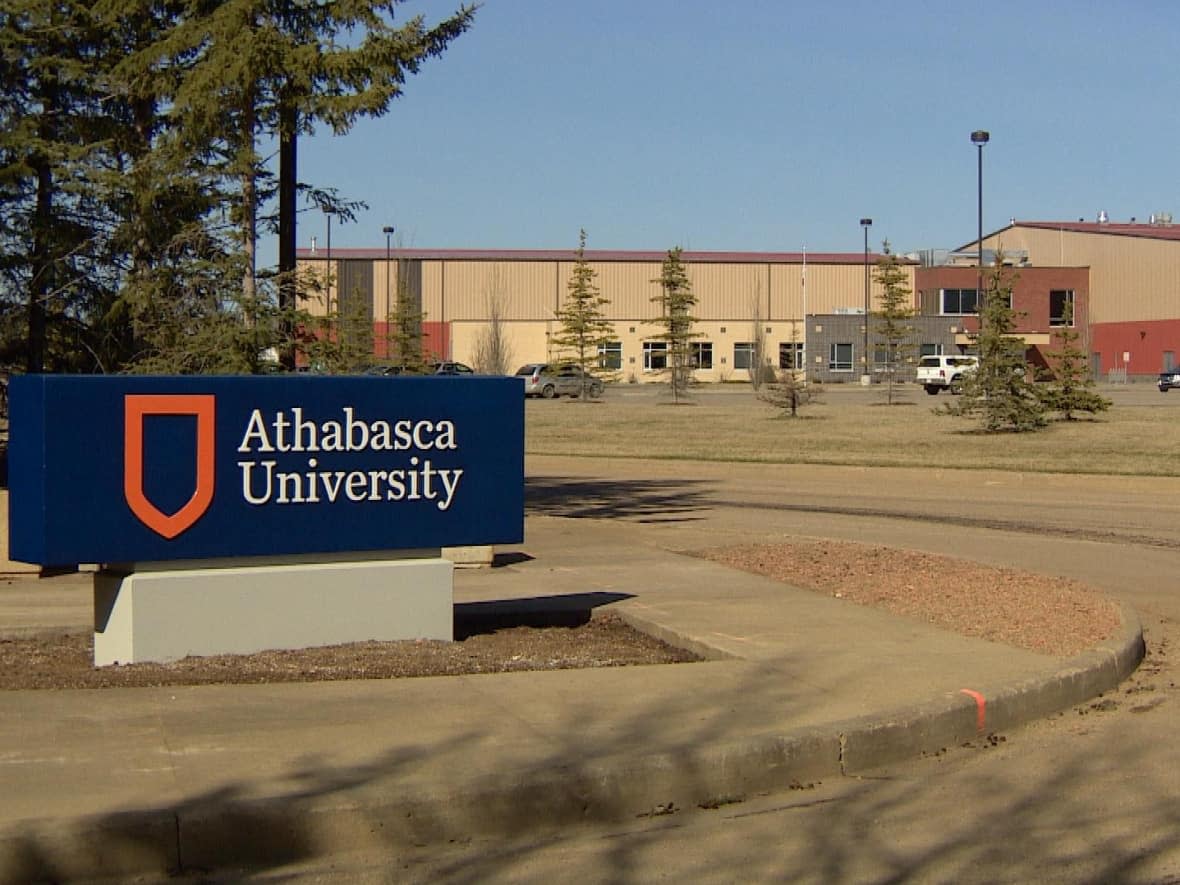Alberta government wants 65 per cent of Athabasca University employees working in town, president says

The provincial government has told Athabasca University it must have 500 more staff working in the northern Alberta town within two years, or risk losing some of its public funding, the university's president said.
About one quarter of the university's 1,250 employees are currently based in Athabasca, Alta., about 130 kilometres north of Edmonton.
"I'm concerned that the minister has put [Athabasca University] in an unreasonable, untenable position," president Peter Scott said in a video address posted online Friday morning.
Minister of Advanced Education Demetrios Nicolaides is asking the university to sign a funding agreement including "unachievable" goals and timelines, Scott said.
Using a new provincial performance-based funding model, the government wants to tie nine per cent of Athabasca University's provincial funding to successfully locating 65 per cent of its employees within the town of Athabasca by 2024-25, Scott said.
The government's approach is creating "massive alarm" among students and staff, Scott told CBC News. Paying to relocate hundreds of staff to Athabasca — if they were willing to move to keep their jobs — would divert millions of dollars away from student programming.
Scott said the government's approach fails to reflect the modern reality of running a university that educates 40,000 students across Canada and the world remotely.

"Signing this agreement may set the university back 40 years and put it on the path to ruin," he said in Friday's video address.
He accused Nicolaides of "unprecedented" meddling with university operations.
Last week, Nicolaides told the university's board of governors to scrap its "near virtual" workplace strategy and submit a new plan by the end of September.
The board has yet to meet to discuss the request.
In a statement Friday, Nicolaides said the choice of whether to sign a grant agreement with the province is up to the university's board of governors, not the president.
The minister appoints the members of post-secondary institution boards.
"This government will not waver in its support of [Athabasca University] as a key economic and social driver in the northern region," Nicolaides' statement said. "Alberta's taxpayers deserve to see their millions of dollars in funding for this institution benefit the local community and Albertans alike."
Scott said it's not the university's job to single-handedly drive the town's economy.
Nicolaides' statement said the university also neglected to submit a plan or timeline to base university senior administrators in the town and the government was "forced" to develop its own roadmap.
Locals want Athabasca employees living in town
In June, the minister signed an order-in-council that requires the town to be the primary location of Athabasca University.
Athabasca's town council and a grassroots group called Keep Athabasca in Athabasca have been advocating for the government to keep the campus operating.
Athabasca Mayor Rob Balay says the university's near-virtual plan threatens to relocate even more jobs away from the town, which has a population of about 2,800.
The provincial government of the day relocated the university's headquarters to Athabasca from Edmonton in 1984 to be an anchor employer and stimulate rural economic growth, he said.
University buildings constructed with public money are now sitting mostly empty, he added.
The town likes the minister's proposal to base more jobs locally, he said. Balay would especially like to see administrative jobs based on campus in person.
Forcing 500 families to relocate to the Athabasca area within a couple of years is unfeasible, given that housing is already hard to find, said Rhiannon Rutherford, president of the Athabasca University Faculty Association, which represents about 400 employees.
"It's a fantasy," she said.
Any relocations to Athabasca should be voluntary, and achieved by hiring new people or offering incentives to existing employees, she said.
Athabasca University Students' Union president Karen Fletcher said Friday that students deserve to be consulted on any major changes to the university.
"I am disappointed that the student voice has been excluded from the discussions thus far," she said by text message.
Fletcher said any performance-based funding should be linked to student success, rather than location of employees.


